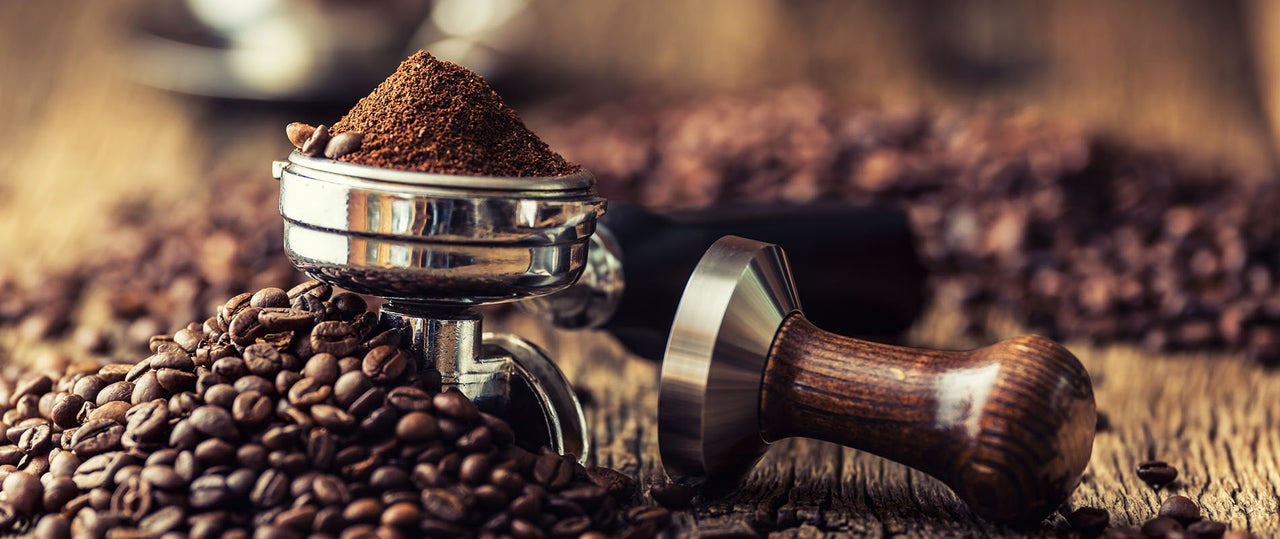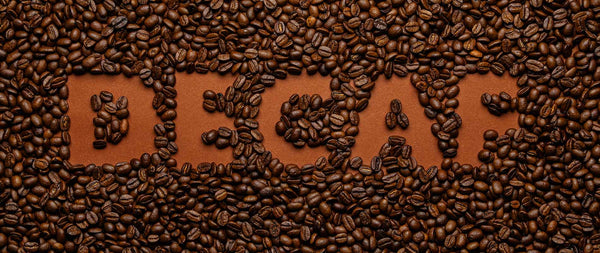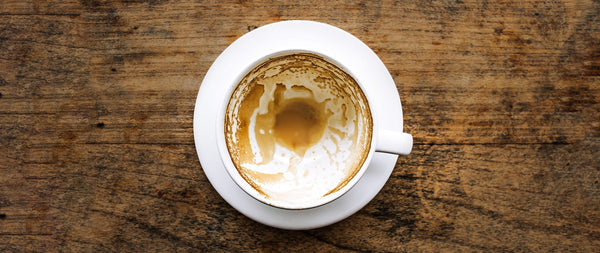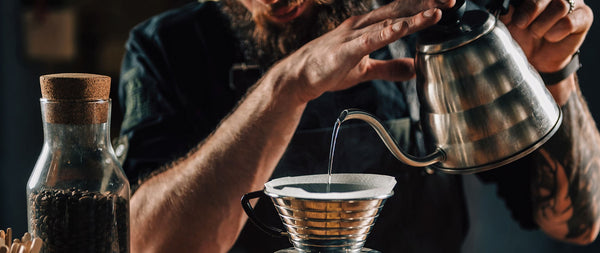You'll be hard-pressed to find someone who doesn't feel strongly about their view of espresso vs coffee. All around the world, cultural heritage strongly influences one's choice of coffee or espresso in the morning.
Italians view espresso as a serious, unarguable part of their mornings. On the other hand, you might find a long-time cattle rancher laugh at espresso and demand their morning cup of traditional coffee made in a standard coffee maker.
But despite cultural traditions and longstanding preferences, what makes espresso and a standard cup of coffee so different? Are there health, taste, and caffeine differences, or is espresso just strong coffee?
We'll brew the answers to all those questions for you and more below! Grab your coffee of choice, take a seat, and enjoy this read.
Is Espresso Just Strong Coffee?
The answer is a touch more complicated than a simple yes or no. But, if we're getting technical, yes, espresso is a type of coffee that is much more concentrated and stronger than a traditional cup of coffee. Coffee and espresso aren't two entirely different things. They are both coffee but are made with different grind and brew methods.
Espresso is made by forcing immensely hot water under high pressure through tightly packed, finely ground coffee beans for a short period of time. The finely ground beans are essential to making espresso because they allow for a more even extraction. Espresso creates a strong coffee drink, but there are a few more differences that result from this brewing method.
For example, espresso produces a rich crema on top, whereas coffee does not. Crema is a foamy, creamy layer that is usually a lighter brown than the espresso itself and is very bitter. This bitter taste is due to the pressure forcing more of the oils from the coffee beans into your cup.
So espresso is a much more concentrated shot of coffee, but are the caffeine levels astronomically different?
Espresso vs Coffee Caffeine
Espresso has more caffeine than coffee. Only one ounce of espresso (equal to one shot measurement) contains roughly 64 mg of caffeine. According to the National Coffee Association, one 8 oz cup of coffee contains around 95 mg of caffeine. So if comparing ounce to ounce in caffeine levels, you're getting more caffeine in one ounce of espresso than in five ounces of coffee!
But this difference is less significant than you might think because the serving size for espresso is much smaller. A regular cup of coffee is 8 ounces, whereas the standard serving size for espresso is one to two ounces.
When asking about caffeine levels in regards to espresso vs coffee, the answer really depends on if you're asking ounce to ounce or cup to cup.
Caffeine levels in coffee and espresso can also vary greatly depending on the type of bean, the roast, the grind, the amount used, and the exact brewing method.
Espresso vs Coffee Taste
Coffee is coffee, right?
Wrong.
The taste of espresso vs coffee can vary greatly. Aside from the roast and beans (we'll get to that in a bit), a significant difference in taste between espresso and coffee is that espresso is much more concentrated. This means that the flavors in espresso are more intense with a more robust, richer coffee flavor. Espresso tastes less acidic than typical drip coffee but lends itself to being more bitter.
The other big difference in taste between espresso and coffee is that espresso has a richer, creamier flavor thanks to the crema. It might not be noticeable to everyone, but if you take your coffee with milk or creamer, you might find that espresso doesn't need as much as regular coffee does.
Now when it comes to beans, espresso beans are generally a very deep, dark roast. This provides the rich, bold flavor that espresso is known for and allows it to cut through a strong milky taste in standard espresso drinks like cappuccinos and lattes.
On the flip side, regularly brewed coffee can be roasted from light to dark to suit the taste preference of its drinker. However, no matter what you choose, coffee or espresso, freshly roasted beans are vital in getting the fullest and most flavorful taste.
Get Roasted's Espresso Crema Dolce has flavor profiles of milk chocolate tones with hints of caramel and cinnamon. As a dark french roast, it is full-bodied with a caramel-syrup-like heaviness followed by a sweet, creamy finish. Now, tell us that doesn't sound as if it tastes like perfection in a cup!
If a dark roast isn't your desire, our Panama Estate Medium Light Roast is the perfect roast to suit your fancy. This coffee is roasted at a light-medium roast to maintain its brightness and citrus notes while keeping an ideal balance of sweetness and nuttiness.
Espresso and coffee will always have different tastes for multiple reasons, but either will always give you a delicious cup in the morning!

Is Espresso Better For You Than Coffee?
Both coffee and espresso have their own health benefits, making them excellent choices for your morning cup of Joe. Since espresso is still coffee, only brewed differently, there aren't many health differences between the two.
However, since espresso is a very dark roast, it has more antioxidants than lighter to medium roast coffee, which means it can potentially help your body fight off disease and inflammation better.
Espresso vs Coffee Machine
Aside from the roast and grind time, the significant difference between espresso and traditional coffee lies in the method of brewing from their machines.
An espresso machine uses extremely high pressure to pump hot water through a very small amount of finely ground coffee beans, also known as the coffee puck, resulting in a small amount of highly concentrated thick coffee with a thick crema on top. The average time for this process is about 25-30 seconds.
On the other hand, drip coffee makers use gravity to drip hot water over coarsely ground coffee beans slowly and then let it drip into a pot or carafe, making for a larger quantity of coffee. This process can take anywhere from 3-5 minutes. Drip coffee makers are relatively inexpensive in comparison to higher-priced espresso machines.
In Summary
So what's the verdict for espresso vs coffee?
It all comes down to personal preference! Some people prefer the intense flavor, crema, and concentration of espresso, while others prefer drip coffee's more mellow, classic taste.
The caffeine levels are similar when comparing one strong 8 oz cup of coffee to two ounces of espresso in a latte. But if you're looking for a quick boost to get you going, one single shot of espresso will give you that jolt of caffeine faster than drinking an entire cup of coffee.
Since darker roasts of coffee often contain more antioxidants, espresso may be a touch better for your health, but in the grand scheme of things, neither is more or less healthy than the other.
At the end of the day, flavor and texture is the most domineering factor when it comes to preference for espresso vs coffee. Since both are coffee, just brewed in different machines with different techniques, the ending result has the most effect on the richness, acidity, and flavors that come out.
Ultimately, you won't go wrong with either! If you like to keep things on hand, check out our espresso crema dolce roast in both caffeinated and decaf versions, and peruse our wide selections of light, medium, and dark roasts! Switching things up to enjoy both beverages every so often makes for an exciting morning.
So, the next time you're feeling indecisive at the coffee shop or at home, remember that there isn't a right or wrong answer when it comes to espresso vs coffee- just like in life, both have their own unique set of benefits and drawbacks. The important thing is that you enjoy what you drink each morning and feel fueled up for the day ahead!




